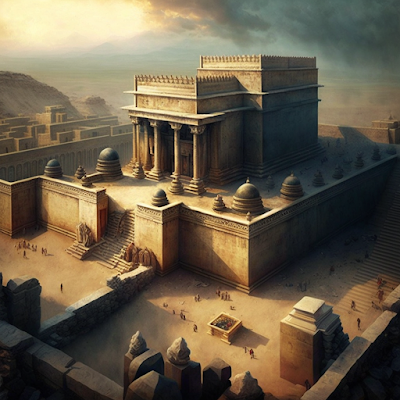Ephesus
Ephesus was an ancient Greek city that played a significant role in shaping the history and culture of the Aegean region. Located in present-day Turkey, Ephesus was once a bustling port city and a center of trade and commerce in the ancient world. Over the centuries, it was ruled by various empires and became a cultural hub that attracted scholars, philosophers, and artists from across the Mediterranean.
Biblical and Christian Significance
From a Biblical and Christian history perspective, Ephesus holds great significance as it is mentioned numerous times in the New Testament. The city was an important center of early Christianity and played a crucial role in the spread of the religion in the Mediterranean. In the Book of Acts, it is mentioned that the apostle Paul visited Ephesus and preached the gospel to the people. He established a church in the city, which became one of the most important centers of early Christianity. The city was also the site of one of the seven churches mentioned in the Book of Revelation, which were addressed by John the Apostle. Ephesus was known for its pagan beliefs and was home to the Temple of Artemis, which was one of the most important religious sites in the ancient world. Despite this, Christianity thrived in the city, and the teachings of Paul and other apostles had a profound impact on the people.
One of the most significant events in Ephesus's Christian history was the Council of Ephesus in 431 AD. This council was called to address the issue of the nature of Christ, specifically whether he was a divine being or a human being. The council ultimately affirmed the belief that Christ was both fully divine and fully human, which became a cornerstone of Christian doctrine.Ephesus was also the site of one of the most famous epistles in the New Testament, the Letter to the Ephesians. This letter, written by the apostle Paul, emphasizes the importance of unity in the Christian faith and encourages believers to live a life of love and righteousness.
Background & History
Ephesus was founded in the 10th century BC by Greek colonists who arrived in the region seeking new lands to settle. Initially, it was a small settlement that grew into a prosperous city over time. By the 6th century BC, it had become one of the most important cities in the Greek world, with a thriving economy and a rich cultural heritage. One of the most striking features of Ephesus was the Temple of Artemis, which was one of the Seven Wonders of the Ancient World. The temple was dedicated to the goddess of the hunt and was renowned for its grandeur and beauty. It was also a center of religious activity and attracted pilgrims from across the region.
In addition to the Temple of Artemis, Ephesus was home to many other magnificent structures, including the Library of Celsus, the Great Theater, and the Odeon. These buildings were not only architectural marvels but also important centers of learning and cultural exchange. Ephesus was also a center of trade and commerce, with a bustling port that connected the city to other regions of the Mediterranean. It was a hub for the exchange of goods and ideas, and its merchants were renowned for their wealth and business acumen.
Over time, Ephesus was ruled by various empires, including the Persians, the Macedonians, and the Romans. Each of these empires left their mark on the city, contributing to its rich cultural heritage. Despite its prosperity, Ephesus eventually fell into decline in the 7th century AD. The port silted up, making it difficult for ships to access the city, and it was eventually abandoned. Today, the ruins of Ephesus are a testament to the city's rich history and cultural heritage. Visitors can explore the ancient streets, marvel at the remains of the grand buildings, and imagine what life was like in this once-great city.




Comments
Post a Comment